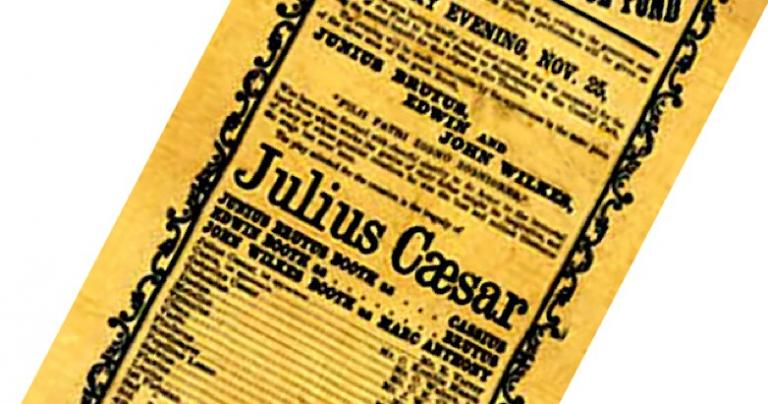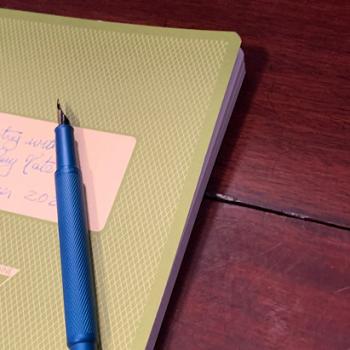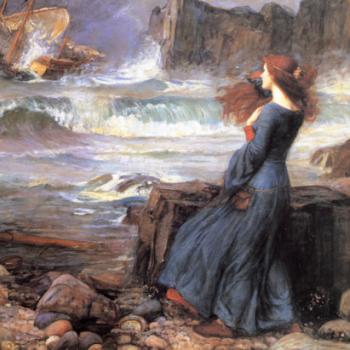
Imagine reading a great work and deciding you are a hero.
This will not go well.
John Wilkes Booth played Mark Antony in Julius Caeser. Antony gets the best speech defending the murdered Caesar against the assassin: Brutus. Booth killed a man he thought a tyrant, our greatest President: Abraham Lincoln. He shot the Emancipator in the back of the head and leapt to the stage and shouted his practiced line: Sic semper tyrannis.
Booth broke his leg and was left lame, because he was a fool trying to be Brutus with the eloquence of Antony. Booth missed the message of Shakespeare’s play.
He put the drunkard Democrat Andrew Johnson in office and doomed the South to years of segregation, futility, and poverty. The great enemy to leaders is flattery and John Wilkes Booth was a theater star, subject to endless flattery. Handsome as a god, he became less than a man.
John Wilkes Booth made the mistake of thinking he was the hero when in reality he was not fit to be the heavy. It is easier, far, far, easier to be bad than to be good. Booth was a cowardly bad guy when he intended to be, at least, a noble villain.
Shakespeare’s play presented a good man gone bad by loving an abstraction, “Rome,” more than a man.
This is like loving money more than a person.
Shakespeare warns us. There is no good in an honorable man who will kill his friend to prevent imagined evils. The nobleman might have to fight tyranny, but if he does, then he must do so straightforwardly. He cannot stab, or shoot, in the back.
Yet there is a deeper evil in Brutus and Booth: the assassin makes the most unkind cut of all to the Republic. Kill the tyrant, make a martyr. The murdered tyrant gains tears. The murderer who survives becomes a loathed thing, less than a man.
Brutus in Shakespeare’s play confuses himself with his ancestors who defeated tyrants. Instead of a hero, he enabled tyrants. Worst, he did what many of us do: he thought himself a hero when he was a bit player.
We watch the movie and imagine that we are Frodo, Black Panther, or Captain America. In fact, we are the hobbit at the pub, the Wakanda farmer, or the sidekick at best. We pretend we are great, when we are (at best) a bit above average and probably merely average. We leap from our great deeds, our church, our non-profit, our business, our thing, and break our legs.
We are lame.
There are no allies who can save us. We are crippled by our pride: we think ourselves slayer of tyrants, when we are unfit to black the tyrant’s boots.
In heroic moments, say D-Day, almost all men are the privates who storm the beaches and not the generals who gave orders. Plain heroes, most heroes, do as they must in situations made by others. They do what must be done out of duty.
God help our Republic to produce men who know their place: bit players and not stars.
















